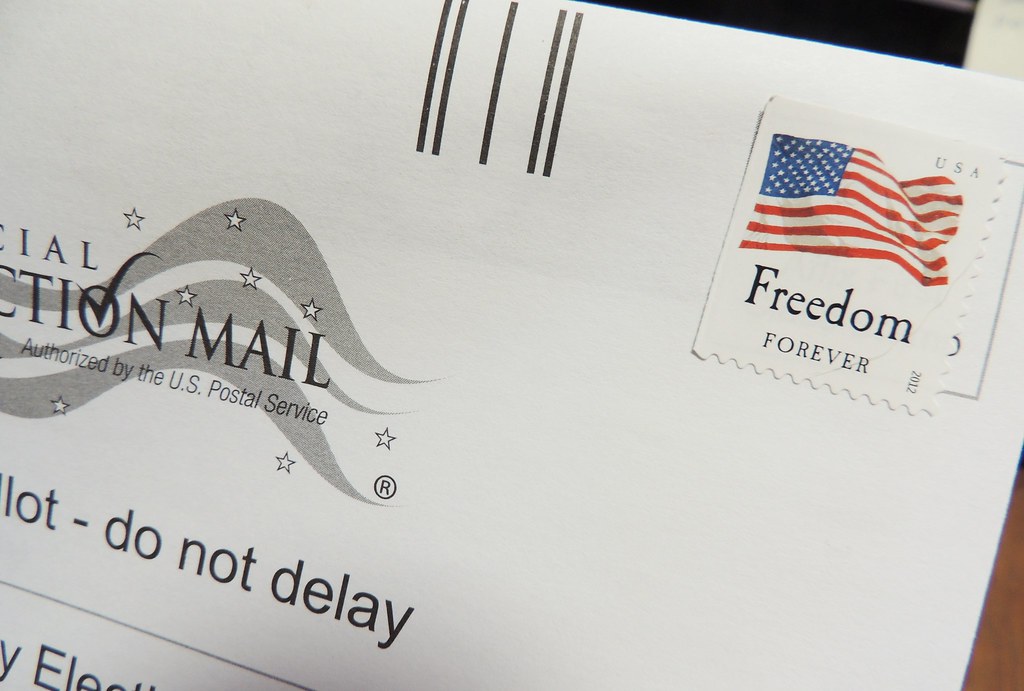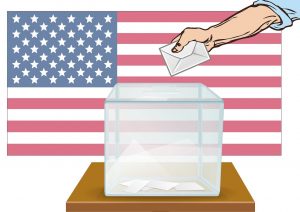by Laura Bray
for the “Progressive Views” column, Boerne Star, May 1, 2020

Texas has some of the most restrictive rules in the United States when it comes to voting by mail. The only voters eligible to vote by mail under current election law are anyone over the age of 65; anyone who is sick or disabled; anyone who will be out of the county on Election Day and during the period of early voting; or persons confined in jail (but eligible to vote). Especially in the midst of a pandemic, it’s time to expand that eligibility or eliminate those restrictions altogether.
According to Jonathan Chait of New York Magazine, the president is “asserting that members of the military and senior citizens—constituencies that lean Republican—can be trusted not to commit voter fraud, but that constituencies that might vote Democratic cannot. He is willing to support accommodations to allow Republican-leaning voters to vote without risking their health, but refuses to support any such accommodations for Democrats.”
The Texas Democratic Party has filed two lawsuits, one in state court, one in federal court, challenging the state’s restrictive vote-by-mail rules. On April 17, Travis County District Judge Tim Sulak signed an order that will permit Travis County voters to use the “disability” category of eligibility broadly, allowing those who are worried about contracting COVID-19 to request mail-in ballots during elections in July and November. The State of Texas has appealed this ruling to the Texas Supreme Court—where nine Republican justices fill the bench. (This is the current status of the lawsuit as of this writing.) According to Ian Millhiser of Vox, “Because older voters tend to prefer the GOP, the Texas Republican Party has a clear interest in preserving a legal regime that allows voters over 65 to obtain an absentee ballot but makes it much harder for younger voters to do so.”
Five states (Colorado, Washington, Oregon, Hawaii, and Utah) already allow all their residents to vote by mail if desired, and they have near non-existent voter fraud issues. According to the non-profit advocacy group the National Vote at Home Institute (NVHI), “in the 2018 midterms, a full 69% of all votes cast in the West were from mailed-out ballots.” Twenty years ago, Oregon voters approved a vote-by-mail measure. According to an article in The Oregonian, “Oregon’s elections are secure with digital signature files for every voter. Every ballot has a unique barcode so no one can duplicate a ballot and try to vote twice. Voters receive a text message alerting them that their ballot has been received and counted.” Oregon and the other four states clearly demonstrate that voting at home can be done securely.
Voting at home “empowers voters, letting them decide when, how, and where to vote,” according to NVHI. “They don’t have to take time off work, drive to a polling place, or stand in long lines.”
You can also follow the National Vote at Home Institute on Twitter @voteathome or on Facebook @NationalVoteAtHome
In an editorial on April 15, the San Antonio Express-News called on Gov. Abbott to call a special legislative session “to address myriad concerns threatening the primary runoffs and November general election.” They continued, “There is value in expanding mail-in voting, especially during a public health crisis. No voter should be disenfranchised out of concern for catching COVID-19. That’s why the state needs to craft a bipartisan plan.”
At the beginning of April, “the GOP-appointed Texas Secretary of State issued voting guidelines that failed to give local election officials reasonable directions on how to accept mail-in ballot applications sent by voters concerned about exposure to the coronavirus. Instead, the SOS implied that each county must seek a local court order. The refusal to provide explicit direction puts Texas voters in exactly the same situation as those in Wisconsin [during their controversial primary on April 7; see my column last week]: risk exposure to a deadly disease or forfeit your right to vote,” according to Matt Angle of the Lone Star Project.
The Kendall County Democratic Party strongly encourages anyone eligible to vote by mail to request an application to do so now. You can find an online application in the “Election Information” section of the website for the Kendall County Elections Department, or you can call them at 830-331-8701 to request one. Any expanded vote by mail option will require careful planning, widespread education efforts, and funding for equipment and to increase staffing in elections offices. That effort needs to begin now. Longer term, we need to elect more Democrats to the Texas House and Senate and statewide offices, so all these voting suppression methods will be repealed and everyone who is eligible will find it easy to vote.



